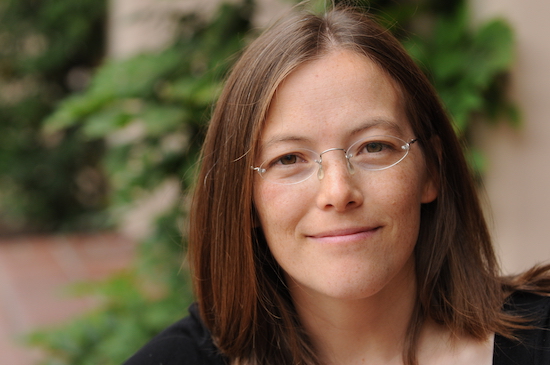STEM shoutout: Dr. Meeko Oishi
UNM control theorist makes strides in cyber-physical system knowledge
Dr. Meeko Oishi, associate professor and regents’ lecturer, recently received an NSF Cyber-Physical Systems award.
Oishi’s research group develops theories and algorithms designed to assure safety in autonomous, cyber-physical systems.
For the award, Oishi, in collaboration with Carnegie Mellon University, is working to develop theory and algorithms to carry out verification on human-in-the-loop systems. Human-in-the-loop systems are “an extremely difficult and timely problem,” Oishi said.
Oishi has also recently finished an NSF Civil, Mechanical, and Manufacturing Innovation project dedicated to human-aware user-interfaces for aircraft flight management systems, and currently, and NSF CAREER award on formal methods for control of collaborative systems.
The CMMI award was completed in collaboration with Purdue University to design dynamics and human-aware user-interfaces for aircraft flight management systems.
“In this work, we were designing estimation algorithms to infer human intent, and sensor placement algorithms to identify the optimal content for the user-interface in complex, automation systems, such as aircraft cockpits,” Oishi said.
Another of Oishi’s current endeavors, a NSF National Robotics Initiative with primary investigator Dr. Lydia Tapia, involves building collaborative navigation in dynamic and stochastic environments.
For this project, Oishi and Tapia, who teaches computer science at UNM, are merging stochastic reachability with planning tools to develop strong navigation solutions in extremely challenging environments.
“We focus on designing controllers to assure safety, despite real-world constraints, such as actuator saturation, as well as stochastic disturbances, such as model uncertainty. Our long-term goal is to enable autonomy through algorithms that can provide rigorous, mathematical assurances of correct behavior,” Oishi said.
Oishi’s research also has been recognized by Sandia Labs for her work with stochastic reachability techniques. L3 Applied Defense Solutions (L3 ADS) has also reached out to Oishi, “to investigate feasibility of forward stochastic reachability techniques for verification of hybrid control algorithms for space vehicle maneuvers,” she said.
Oishi’s expansive research has contributed much to systems that are expensive, high-risk, or safety critical.
“Providing mathematical assurances of safety is an important part reliable design. These systems are often so complex that intuition alone is not enough to assure correct design. My group’s work helps to solve big problems — we identify circumstances under which safety guarantees are possible, as well as whether or not it’s possible to compute them efficiently,” Oishi said.
“I’m extremely proud of the work my research group has accomplished. I’m excited to build not only technical expertise in my lab group, but also to help create opportunities for my students. Building a community of researchers with expertise in autonomy is an important goal in an of itself, but also opens up new opportunities to work on challenging problems. It’s enormous fun and deeply satisfying,” Oishi said.

